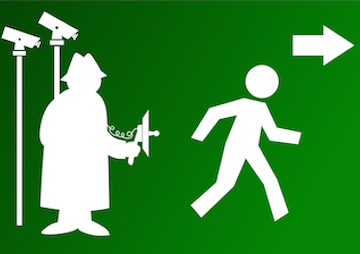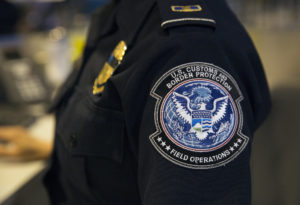ACLU Moves to Shut Down NSA’s Ongoing Bulk Phone Data Collection
Just after he signed the USA Freedom Act in early June, President Obama took steps to ensure that the government's contentious practice of collecting Americans' phone records in bulk, one of the main sticking points in the tussle over the bill, could continue through the end of 2015. Frank Fiedler / Shutterstock
Frank Fiedler / Shutterstock
Just after he signed the USA Freedom Act in early June, President Obama took steps to ensure that the government’s contentious practice of collecting Americans’ phone records in bulk, one of the main sticking points in the tussle over the bill, could continue through the end of 2015. Much of the debate up to that point had focused on Section 215 of the Patriot Act, which was scheduled to expire June 1 but ended up being temporarily resuscitated by the Freedom Act.
On Tuesday, the American Civil Liberties Union made good on its bid to stay on Obama’s case on this issue by taking action in federal court to block the NSA from gathering phone data over a six-month extension period (per The Guardian):
“Today the government is continuing – after a brief suspension – to collect Americans’ call records in bulk on the purported authority of precisely the same statutory language this court has already concluded does not permit it,” the ACLU writes in a motion filed on Tuesday before the second circuit court of appeals.
[…] Its major contention in support of the requested injunction is that despite the Freedom Act’s provision for a transition period, the underlying law authorizing the bulk surveillance remains the same Patriot Act provisions that the second circuit held do not justify the NSA phone-records collection.
“There is no sound reason to accord this language a different meaning now than the court accorded it in May. [The Patriot Act] did not authorize bulk collection in May, and it does not authorize it now,” reads the ACLU brief.
The details of this ongoing battle get a bit convoluted (and perhaps could be filed under “confusing on purpose”), but The New York Times provided a breakdown of the relevant main events that occurred over recent weeks:
In May, the United States Court of Appeals for the Second Circuit ruled that the program was illegal. It said that the law the government says authorizes the program, Section 215 of the U.S.A. Patriot Act, could not be legitimately interpreted as permitting the systematic collection of Americans’ domestic phone records. But the court refrained from issuing an injunction because the law was about to expire.
In early June, Congress passed a law, the U.S.A. Freedom Act, extending Section 215 but saying the government could not use that provision for bulk collection after a 180-day transition period. The bill did not say whether Section 215 could be used for bulk collection before that period expires on Nov. 29, so the question of whether the program would be legal until then remained ambiguous.
In late June, a judge on the secret Foreign Intelligence Surveillance Court disagreed with the Second Circuit that the program was illegal and authorized the N.S.A. to resume collecting bulk phone records for the duration of the 180-day period. Now, the A.C.L.U. is asking the Second Circuit to block the program with the injunction it had previously refrained from issuing.
Got that? But wait — there’s more: The NYT also noted that this legal struggle could go on throughout the entire 180-day limbo phase. Meanwhile, it’s unclear whether the government will claim it has a right to hold on to the information it has been able to pull from domestic phone records.
–Posted by Kasia Anderson
Your support matters…Independent journalism is under threat and overshadowed by heavily funded mainstream media.
You can help level the playing field. Become a member.
Your tax-deductible contribution keeps us digging beneath the headlines to give you thought-provoking, investigative reporting and analysis that unearths what's really happening- without compromise.
Give today to support our courageous, independent journalists.






You need to be a supporter to comment.
There are currently no responses to this article.
Be the first to respond.